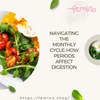
The Western world is at the forefront of some very ground-breaking eco-friendly initiatives. Our local communities are making big lifestyle changes in order to produce less waste.
Some people cut plastic, while others work in slow fashion, run repair cafes, or conduct upskilling seminars. People of all ages can gain the skills and adopt the mindset to make, create, and care for what they have rather than throw it away and buy new.
The world is adopting simple alternatives to mass-produced, store-bought, highly packaged commodities. If you take on each of the five points below one at a time, you'll soon notice a significant reduction in the amount of plastic in your life as well:
Top 5 Tips for reducing plastic-use and waste at home
- Purchase a set of fabric bags, and combine them with your Tupperware or other lidded containers to begin ‘unpackaged ‘ shopping at your local shops, markets, or zero waste stores.
- Utilize beeswax wraps or vegan food wraps to avoid using cling film and to keep unpackaged food fresh for longer.
- Order milk and other supplies from your neighbourhood milk refill station. If you prefer plant milk, try making oat milk, which is both easy to make and sustainable.
- Begin utilising refills for toiletry and cleaning goods — these days, every town has a shampoo, conditioner, dishwashing, and laundry detergent refill station.
- Consider creating some easy foods at home that you would normally buy off the shelf: hummus, salad dressings, granola, biscuits, or anything else that appeals to you and is enjoyable and fulfilling.
Businesses, schools, and communities are attempting to reduce their plastic footprint and eliminate the use of disposable plastic. The majority of the plastic in our houses is disposable, and many plastic objects are cheap, easily breakable, and cannot be repaired. When you reduce your consumption of these products, you become much more aware of your own consumption and how valuable everything is in life. Sustainability is the key!




Leave a comment